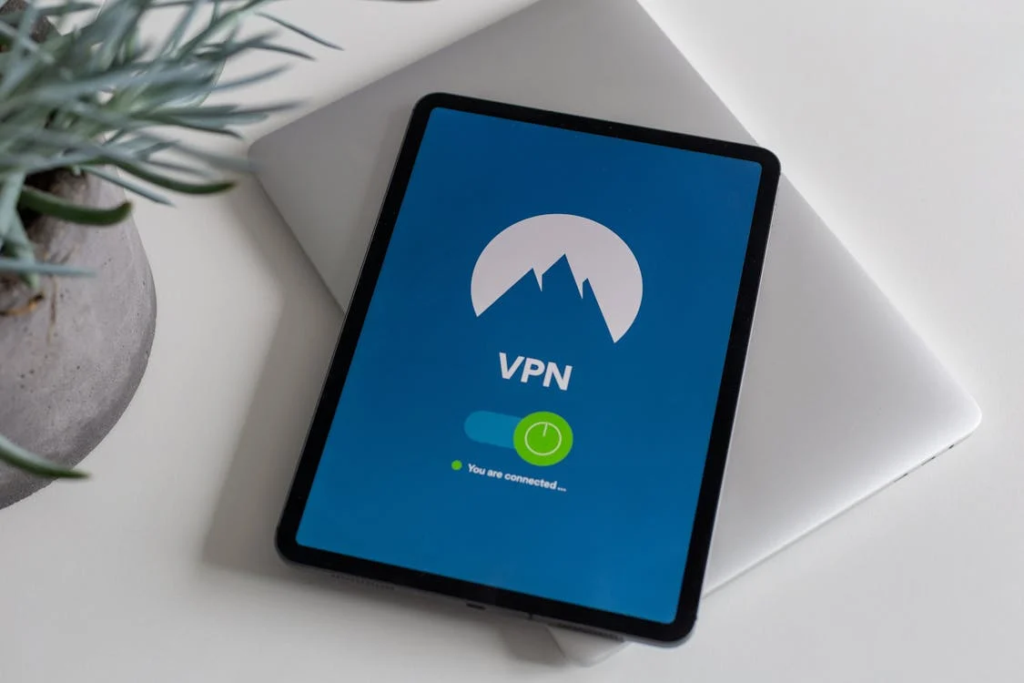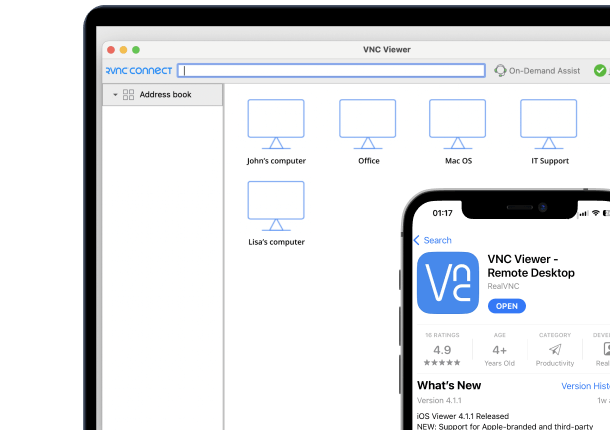Definition and Purpose
A remote access VPN is a type of virtual private network designed to enable users to securely access a private network from remote locations. Its primary purpose is to create a secure and private connection between a remote user’s device and a company’s internal network.
This secure connection allows remote employees, contractors, and partners to access resources and applications as if they were physically present in the office.
By using a remote access VPN, businesses can ensure that their remote employees can securely access sensitive data and internal systems, maintaining productivity and security regardless of their location.
How Does a Remote Access VPN Work?
A remote access VPN functions differently from other types of VPN services, as it must provide secure access to individual users rather than entire networks.
The user installs a VPN client on their device, which authenticates with the VPN gateway installed on the company network. This VPN client software is essential for managing authentication and creating encrypted tunnels for data transmission between devices and the VPN gateway, ensuring a secure infrastructure for remote work.
Once authenticated, the user’s computer is given an IP address on the company network, allowing access to internal resources such as files, printers, and servers. A remote access VPN establishes secure, encrypted connections between a user’s device and the corporate network.
Remote Access VPNs can be set up in different ways. Some rely on hardware, like a dedicated VPN gateway, while others use cloud-based VPN solutions. The choice of implementation depends on the company’s specific needs.
Remote access VPNs work by creating secure connections between external users and an organization’s internal network, emphasizing the encryption processes involved.
What is the difference between Remote Access VPN vs Site to Site?
While a remote access VPN provides secure access for individual users, a site-to-site VPN connects entire networks together. For example, if Company A has a site in New York and another in San Francisco, a site-to-site VPN would connect the two sites, allowing employees to access resources across both locations.
In contrast, remote access VPNs are designed to provide secure remote access for individual employees who work from home or travel.
Security Risks and Solutions
While remote access VPNs provide a secure way for remote users to connect to a company’s network, they can pose security risks if not properly configured and managed.
Common Security Risks
Some common security risks associated with remote access VPNs include unauthorized access to the network and resources, data breaches, malware and ransomware attacks, and weak passwords and authentication.
How to Curb These Risks
Implementing robust security measures is essential to mitigating these risks. These measures include strong authentication and authorization protocols to ensure that only authorized users can access the network, encryption, and secure tunneling protocols to protect data in transit, and regular security audits and monitoring to detect and respond to potential threats.
Additionally, up-to-date antivirus software and firewalls, along with secure password policies and multi-factor authentication, can further enhance the security of remote access VPNs.
Benefits of Remote Access VPNs for Business
Remote access VPNs offer numerous benefits for businesses, making them an essential tool for modern workplaces. One primary advantage is improved productivity and flexibility for remote employees, who can securely access the resources and applications they need from anywhere.
Protect Sensitive Information
This secure access helps protect sensitive data and ensures that business operations can continue smoothly, even when employees are working remotely.
Cost Effective Solution
Additionally, remote access VPNs can reduce costs associated with traditional VPN solutions by offering a more scalable and manageable option.
Comply with Regulatory Requirements
They also help businesses comply with regulatory requirements by providing secure access to internal systems and data. By implementing a remote access VPN, businesses can ensure that their remote employees have the secure and reliable access they need to perform their jobs effectively.
Trends in Remote Access VPNs
The remote access VPN market is evolving rapidly, driven by the increasing demand for secure and flexible solutions. One key trend is the rise of cloud-based VPN solutions, which offer greater scalability, flexibility, and cost-effectiveness than traditional VPNs. These solutions allow businesses to easily scale their VPN infrastructure to meet the needs of their remote workforce.
Check out: Five Essential Takeaways from the 2024 RealVNC Remote Access Predictions Report
Another significant trend is the adoption of zero-trust network access, a security approach that assumes all users and devices are untrusted and requires verification of their identity and permissions before granting access to the network. This approach enhances security by ensuring that only authorized users can access sensitive resources.
Secure Access Service Edge (SASE) is also gaining popularity as a cloud-based security platform that provides secure access to corporate networks and applications remotely. SASE offers a more cost-effective and scalable solution than traditional VPNs, making it an attractive option for businesses.
Finally, artificial intelligence (AI) and machine learning (ML) are enhancing the security and performance of remote access VPNs. These technologies enable real-time threat detection and response, helping businesses protect their networks from evolving cyber threats.
These trends are driving the development of more flexible, cost-effective, and secure remote access VPN solutions that meet the evolving needs of businesses and remote workers.
How to Secure Remote Access Without a VPN
While VPNs are a popular solution for secure remote access, there are alternatives available. These include secure remote desktops, web-based file-sharing solutions, and cloud-based virtual desktop infrastructure (VDI) solutions.
One of the downsides to VPNs is that they can be slow and unreliable. Additionally, some employees find them cumbersome to set up and use. Fortunately, new technologies are emerging that make it possible to provide secure remote access without the need for a VPN.
One such solution is RealVNC Connect remote access software, which provides a fast and secure alternative to VPNs. With RealVNC, users can connect to their work computer from anywhere, using any device, without the need for a VPN connection.
Alternatives to a VPN for Remote Access
Remote desktop software, an alternative to VPNs, has become increasingly popular due to its ease of use and speed. Rather than connecting to a company network, remote desktop software allows a user to connect to and control a separate computer or server.
RealVNC Connect is a popular remote desktop solution that uses industry-leading technology to provide secure, encrypted connections. With RealVNC Connect, users can work from anywhere with an internet connection and access their work computer as if they were sitting in front of it.
RealVNC Connect for Remote Access without a VPN
Secure and efficient remote access is critical for business continuity and productivity. While VPNs have long been the standard solution, they come with limitations such as slower connection speeds, complex configurations, and potential security vulnerabilities. RealVNC Connect offers a modern, highly secure alternative that eliminates the need for VPNs, providing a fast, seamless, and user-friendly experience for remote access.
By using advanced encryption protocols, RealVNC ensures that sensitive data remains protected during every remote session.
Key Benefits of RealVNC Connect:
Ease of Use: A simple and intuitive interface ensures a quick learning curve for users of all skill levels.
Fast and Reliable Performance: Efficient bandwidth usage ensures smooth connections, even on slower networks.
Advanced Security: Industry-leading encryption protocols protect data and ensure compliance with security standards.
Quick Setup: Easy deployment and configuration minimize downtime and IT headaches.
Seamless Integration: Works effortlessly with existing systems and technologies, simplifying adoption.
Why Choose RealVNC Connect Over VPNs?
Unlike traditional VPNs, RealVNC Connect eliminates the complexity and performance issues often associated with remote access. It provides a faster, more secure way to connect to critical systems without exposing the entire network to potential threats. Whether you’re accessing files, running applications, or collaborating with your team, RealVNC Connect is designed to keep businesses running smoothly—no matter where your team is located.
The Future of Remote Access
As businesses continue to evolve, the demand for secure, flexible remote access solutions grows. RealVNC Connect represents the next generation of remote access, offering the perfect balance of speed, security, and ease of use. By adopting solutions like RealVNC Connect, companies can empower their teams to stay connected and productive from anywhere, ensuring business continuity in an increasingly remote-first world. Sign up for a free trial to learn more about RealVNC Connect and explore how it can transform your remote access strategy.













